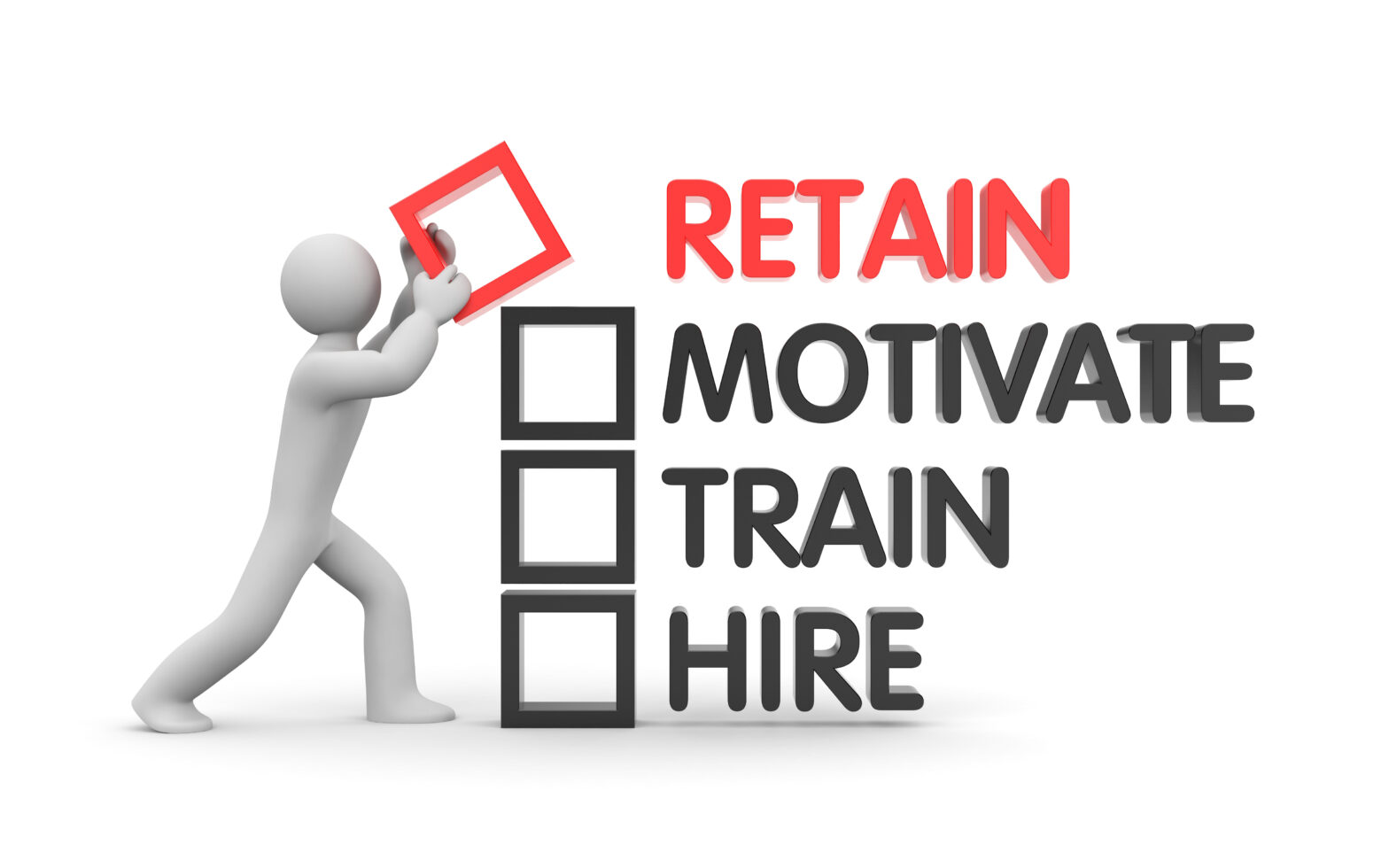Retaining talent isn’t just about keeping key people, it’s avoiding the expense that comes with losing them.
For small and medium-sized businesses, the impact of that cost can be hard to bear. Advertising and recruitment costs and, most importantly, the loss of productivity while a replacement is being found and brought up to speed can all have a huge impact on the bottom line.
What makes much more financial sense, and makes a small business a much more attractive option for a bright and ambitious employee than a faceless global corporation, is to invest in the team you have.
Contrary to popular belief, most people don’t move on because of pay, although that is a factor. What’s more important to your business and valuable to an individual is personal opportunity and development. Humans have an innate need to be challenged, otherwise they’re not growing mentally or emotionally.
Big business may be able to offer pay rises and private health care, but if employees don’t feel valued, even the most generous benefits package won’t stop them from getting restless. What the SME can offer is a benefit that’s much more integral to their career, rather than quick material gain – personal development. People who are being developed, recognised and acknowledged will feel their needs are being met. And when those needs are being met, they will be much less likely to seek satisfaction elsewhere.
When I refer to personal development, I don’t mean indifferently block-booking the whole team on a half-day course to learn the intricacies of spreadsheets, or sending your customer service manager on a one-day, one-size fits all seminar on time management at the local town hall.
Personal development that will attract and retain the best talent is that which focuses on learning something of value which is a benefit to the individual and to the business. Otherwise, it’s just a perfunctory exercise in box ticking.
Small business owners in particular may feel that they don’t have the time or the budget to commit to development at this level: after all, you started your business because you wanted to monetise your great idea. It wasn’t an altruistic exercise in upskilling the local workforce.
The effect of underperforming on a small team
But a small business lives or dies by its workforce, and if one person in a team of ten is underperforming or causing conflict it will have a much bigger impact than a business which has 499 other employees to pick up the slack.
For a small business owner, the more skilled and aware people are in the workforce across a broader range, the greater the level of contingency when things go wrong. Corporates focus their training and development budgets at the highest level. In an SME, the more developed the whole workforce, the better the productivity – and profits.
Delivery drivers, warehouse workers and credit controllers are all front-facing people, so look to improve their customer engagement skills. Sales teams, operations administrators and stock managers all need a good level of financial awareness; understanding what stock does to cash flow and how it impacts the business is incredibly important. Work with these people to develop their skills, and they’ll become loyal employees who can pick up the slack for each other – and you.
And there’s a further financial benefit to investing in personal development for your workforce, particularly where a business coach is an integral part of the development package. When teams are small, the coaching triangulates between the employee, the owner and the coach, allowing them to work together to identify where support is required and how the owner can provide it to the benefit of the business.
Business structure
As a coach, I need to understand the structure of a business and how it operates. I need to find out what level of cover there is and what the key skills the business needs to survive. Is it sales, leadership, or customer engagement? The disciplines my online learning and development platform OBD Academy delivers cover every aspect of operations, and in order to successfully develop a person – regardless of their role – we need to know the big picture of the environment in which they operate.
This means identifying and flagging essential business information that can help to move the business forward and encouraging people to take a deeper interest. The academy’s work-based assignments ask probing questions such as, ‘Who are your top 20 customers?’ or ‘Who’s experienced the greatest decline?’ These are straightforward challenges, however the opportunity to dig deeper into the business to understand the current drivers of customer behaviour offers much needed awareness and a renewed focus.
Not only are you developing your people, trusting them, challenging them and meeting their needs, you’re benefiting from an external perspective of a business coach over a period of months. For the same outlay as sending one manager on a residential sales course in the hope that they’ll retain and apply a small percentage of what they’ve learnt, you could achieve months of applied learning and coaching that’s completely personal to your team member and to your business.
And when it comes to retaining talent, can you afford not to?
David Cartwright is founder of OBD Academy.





